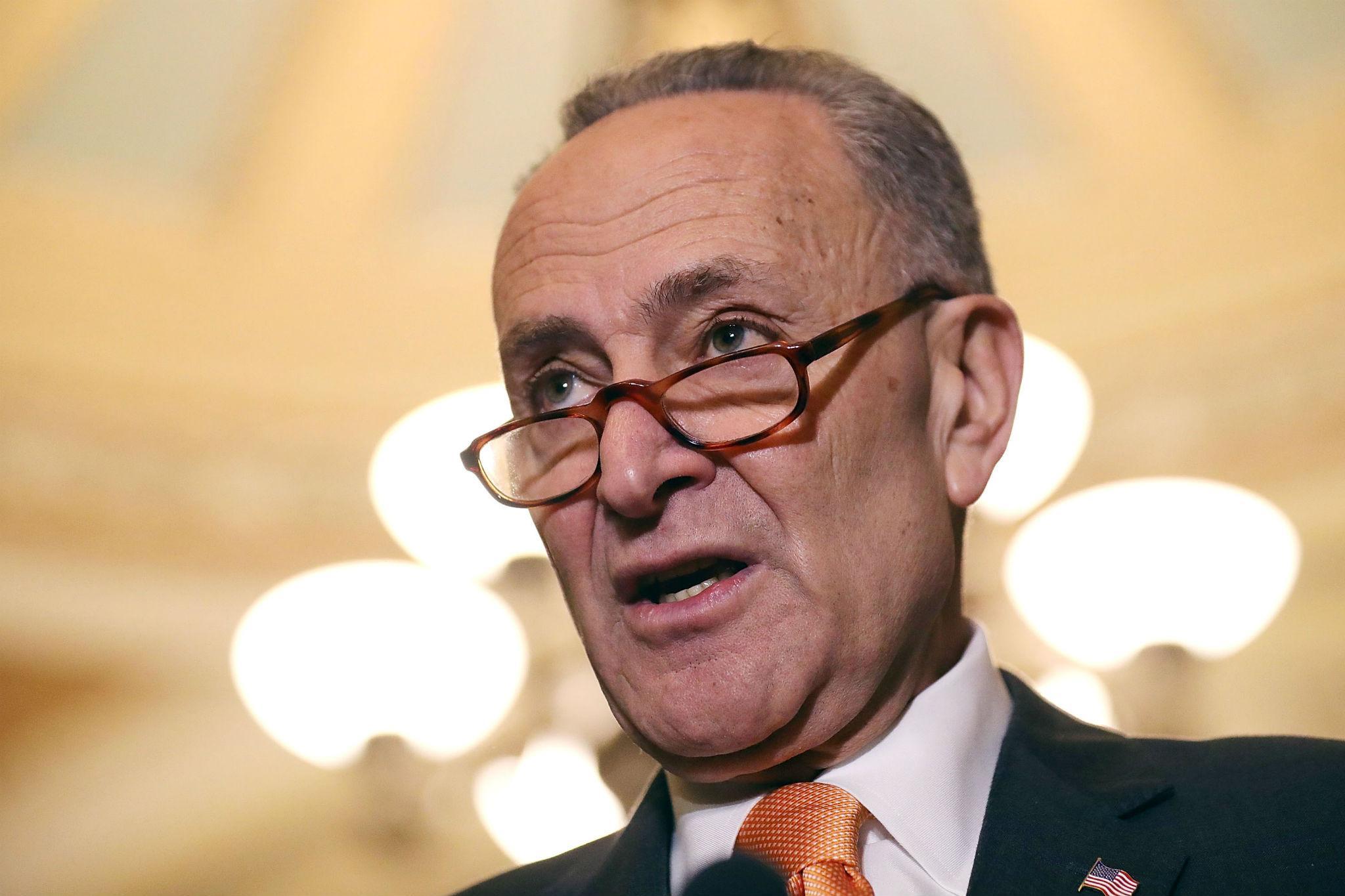Senate leaders strike far-reaching budget deal as they look to end threat of shutdown
It is a rare moment of bipartisanship on Capitol Hill

Your support helps us to tell the story
From reproductive rights to climate change to Big Tech, The Independent is on the ground when the story is developing. Whether it's investigating the financials of Elon Musk's pro-Trump PAC or producing our latest documentary, 'The A Word', which shines a light on the American women fighting for reproductive rights, we know how important it is to parse out the facts from the messaging.
At such a critical moment in US history, we need reporters on the ground. Your donation allows us to keep sending journalists to speak to both sides of the story.
The Independent is trusted by Americans across the entire political spectrum. And unlike many other quality news outlets, we choose not to lock Americans out of our reporting and analysis with paywalls. We believe quality journalism should be available to everyone, paid for by those who can afford it.
Your support makes all the difference.Senate leaders have struck a deal on a far-reaching budget to raise spending over the next two years, seeking to end what has become the regular threat of a government shutdown and providing a rare moment of bipartisanship in Congress.
But the agreement in the upper chamber does not include protections for young undocumented immigrants – a red line for some senior House Democrats – raising the question of whether the budget bill will receive enough votes to pass in the House of Representatives and keep the government open.
“I hope we can build on this bipartisan momentum and make 2018 a year of significant achievement for Congress, for our constituents and for the country that we all love,” said Senate Majority Leader Mitch McConnell.
Senate Democratic Leader Chuck Schumer was also enthusiastic.
“After months of legislative logjams, this budget deal is a genuine breakthrough,” Mr Schumer said. “After months of fiscal brinkmanship, this budget deal is the first real sprout of bipartisanship.”
The deal would raise the spending caps by about $300bn over two years, a congressional aide told the New York Times, with large boosts to military and non-defence spending.
The agreement would also lead to larger federal budget deficits, on top of the deficits already stemming from the Republican tax cuts passed in December. This could spark opposition from conservatives in the House, meaning House Speaker Paul Ryan may need the help of Democrats to pass the bill in the lower chamber.
The Senate agreement also includes commitments to dedicate billions of dollars to areas such as infrastructure, the opioid crisis and health research, the Times reported.
Mr Schumer’s counterpart in the House, Democratic Leader Nancy Pelosi, has already expressed opposition to the deal because it was not accompanied by a debate over legislation to provide a permanent fix to the Deferred Action for Childhood Arrivals (DACA) programme. The House and Senate must past the same version of the bill before it can head to the President’s desk to be signed.
The Obama era-policy, which Mr Trump rescinded in September, granted protection of deportation to illegal immigrants brought to the US as children – so-called Dreamers.
On Wednesday, it appeared that Ms Pelosi set the record for the longest-continuous speech in the House, according to the House's Historian office, to try and force Republicans to bring up an immigration bill in the chamber. If Mr Ryan does indeed need Democratic votes to avert a government shutdown, the Democratic leader is likely to use the DACA issue as leverage.
Ms Pelosi stood in the House chamber for more than six hours to defend Dreamers, saying that Democrats would oppose any government funding bill unless Mr Ryan agrees to take up a bipartisan immigration bill.
“There’s nothing partisan or political about protecting dreamers. If a DREAM Act were brought to the floor, it would pass immediately with strong bipartisan support,” Ms Pelosi said early in her speech after noting that polls show there is bipartisan support among Americans for legislation to protect Dreamers.
“And, I commend my Republican colleagues for their courage in speaking out on this, yet our Dreamers hang in limbo with a cruel cloud of fear and uncertainty above them. The Republican moral cowardice must end,” she continued, referring to Republican leadership’s reluctance to bring a bill to the floor.
While Mr Trump has suggested we would welcome a shutdown, many members of Congress appear to have little appetite for a repeat of January’s three-day closure, which was largely the result of an impasse on immigration.
Democrats last month had demanded that Republican leaders agree to the rough outlines of legislation that would provide protections for dreamers before they voted for a spending bill. While this did not happen, the shutdown ended after Mr McConnell promised to bring a DACA measure to the Senate floor for debate.
But Mr Ryan in the House has made no such promise, which Ms Pelosi is now seeking to secure.
Time is running out for a DREAM Act to be passed for nearly 700,000 Dreamers who have received protected status and the ability to work under DACA. President Donald Trump has given Congress a March deadline to agree to a legislative fix.
If there is no fix, those previously covered under DACA would face potential deportations or arrests from American immigration forces.
Join our commenting forum
Join thought-provoking conversations, follow other Independent readers and see their replies
Comments